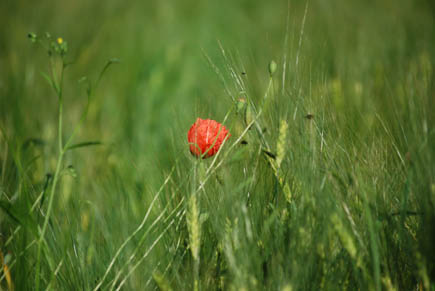
The goal of agricultural policy must be the maintenance of a diverse and vital agriculture!
© Kerstin SauerEcological restructuring of EU-agriculture in danger
Heavy blow for nature conservation and small-scale farmers
Press Release of June 22nd, 2011
Raldolfzell. Trusted sources report that Barroso, EU-commission president, intends to reduce drastically the funds of the so-called second pillar of the EU agricultural policy, thereby affecting the resources for agricultural environmental programmes. Conservationists and farmers are equally shocked by these plans. Lutz Ribbe, political Nature Conversation Director of EuroNatur warns that Barroso’s plans will have fatal consequences. “The reductions will not only entail severe cuttings for small-scale farming but the implementation of the Natura 2000-network and the whole biodiversity policy of the EU will be severely upset.” EuroNatur urges Federal Chancellor Angela Merkel and the Minister of Agriculture Ilse Aigner to acknowledge the significance of the second pillar and to provide their strong support to maintain it.
Up until a few days ago, all lights showed green for Europe’s future agricultural policy. EU agricultural commissioner Dacian Ciolos planned to achieve a fundamental reform for the coming fiscal period 2013 to 2020. The first proposals of the EU-commission were promising: in the future, direct payments were to be aligned more closely to ecological criteria. Right from the beginning, this “green” aspect of the first pillar has been a major nuisance for Europe’s large farmers and the agricultural industry. They gain most benefits by the current system and they have opposed the reform plans from the start. Successfully - as Barroso’s initiative now shows.
According to internal information from Brussels, Germany and France will no longer subsidize the agricultural household to the extent they have done in the past. Supported by the German Federal Chancellor, French President Nicolas Sarkozy emphasised to commission president Barroso that cuttings will be inevitable but the powerful agricultural lobby must not be upset either. Barroso was in that way convinced by Sarkozy and Merkel not to touch the direct payments.
Instead, the second pillar budget shall be reduced. “It would be a disaster for nature conservation and small-scale farming if these funds disappeared”, Lutz Ribbe says. “Organic farming, contractual nature conservation and the regional organic progress would have to accept severe losses. In some regions of Germany, the financial subsidies from the second pillar are even higher than the direct payments from the first pillar of the agricultural budget. For example, in 2010 the Garmisch-Partenkirchen county received more than 7.4 million Euros for various measures from the second pillar, but only 3.1 million Euros as direct payments. Most farmers there would have to give up.”
Barroso’s plans are also a heavy blow for the maintenance of Europe’s biodiversity. The second pillar provides, amongst others, money for the implementation of the Natura 2000-network and subsidises extensive land use. The EU heads of the government already decided ten years ago to stop the loss of biodiversity by 2010. This project has failed miserably. Ribbe demands, “that it is now even more important to expand the organic development in the agricultural policy for the sake of a diverse and vital agriculture instead of further weakening it.”
For questions please contact:
EuroNatur
Lutz Ribbe
Tel.: 02226-2045
mobile: 0170-4125767
Email: lutz.ribbe@euronatur.org
Select on which of your areas of interest you would like to receive our press releases.
You can subscribe to our RSS feeds to receive all the news on the topics of your choice.


